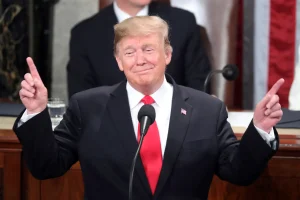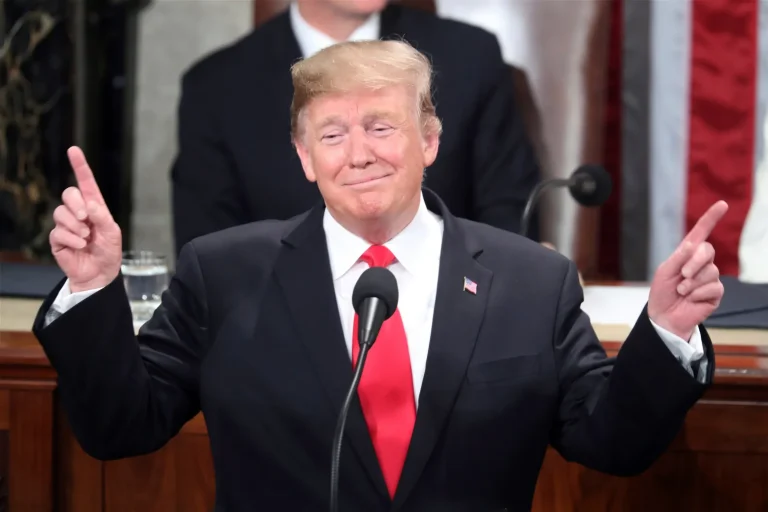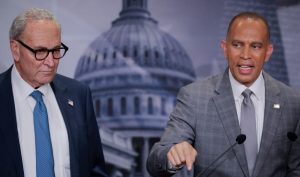Democratic Rep. Jasmine Crockett of Texas is under renewed attention following reports about her financial disclosures and prior business ventures. The scrutiny comes as Crockett, who represents a Houston-area congressional district, has indicated she is considering a 2026 Senate run should redistricting affect her current seat.
Crockett, a former civil rights attorney and Texas state legislator, has publicly discussed her political ambitions, telling media outlets she is “strongly” considering a Senate campaign. While she has framed the potential run as a response to redistricting, her broader policy positions and past financial activity are now being reviewed in detail.
Financial Disclosure Concerns
Reports from the Washington Free Beacon indicate that Crockett held stocks in 25 companies during her first congressional campaign that were not disclosed in her initial filings. The portfolio includes companies across a wide range of industries, including technology, pharmaceuticals, energy, transportation, and cannabis-related businesses.
According to public records, Crockett reported these holdings during her time as a Texas state lawmaker covering the 2021 calendar year. However, the disclosure forms submitted during her congressional campaign did not include the same information, raising questions about consistency in reporting.
Ethics experts note that federal law requires members of Congress to submit detailed financial disclosure forms to prevent conflicts of interest. Caitlin Sutherland, director of the watchdog group Americans for Public Trust, emphasized the importance of accurate reporting. “Personal financial disclosure rules are in place to make sure Members of Congress do not engage in conflicts of interest while working for the American people,” she said. “Discrepancies between state and federal disclosures may warrant further review.”
Business Ventures
Crockett’s financial portfolio reportedly included investments in a cannabis business. As a state legislator and later a member of Congress, Crockett has advocated for decriminalizing marijuana at both state and federal levels. The Washington Free Beacon reported that she had attempted to open dispensaries in Ohio while also representing clients in legal cases involving marijuana-related offenses.
While Crockett has publicly supported legislation aimed at expanding access to medical cannabis and decriminalizing paraphernalia associated with marijuana use, she has not disclosed whether these prior business ventures influenced her policy positions. Some observers suggest that such investments could pose potential conflicts of interest if legislation benefits companies in which she holds stakes.
Legislative Record
During her tenure in the Texas legislature, Crockett introduced bills addressing drug policy, criminal justice reform, and other social issues. After taking office in Congress, she co-sponsored legislation aimed at national marijuana decriminalization. None of the specific bills introduced in Texas became law, but her advocacy on cannabis policy remains a consistent aspect of her political platform.
Crockett’s broader legislative record includes proposals on energy policy, healthcare access, and economic development. Her financial disclosures list stakes in major corporations across multiple sectors, including technology firms, pharmaceutical companies, and energy producers. While investments in publicly traded companies are common among lawmakers, questions have emerged regarding whether her legislative actions align with the interests of her holdings.
Public Perception and Criticism
Crockett has drawn attention for her public speaking style, which mixes colloquial expressions with formal policy statements. Media coverage has highlighted instances where her remarks were described as unconventional for a member of Congress. Some commentators have criticized her approach, while others view it as a way to engage a broader constituency.
Stephen A. Smith, a sports commentator and media personality, recently discussed Crockett’s communication style. “This educated, brilliant representative is engaging in rhetoric that is familiar to the public she serves,” he said, highlighting the balance politicians often navigate between relatability and professionalism.
Transparency and Accountability
The combination of undisclosed financial holdings and prior business ventures has led to calls for transparency. Analysts note that accurate and timely reporting of assets is a cornerstone of congressional ethics, designed to maintain public trust and prevent conflicts of interest.
Legal experts point out that discrepancies in disclosure forms do not necessarily indicate wrongdoing, but they do prompt review by ethics committees and watchdog organizations. The Office of Congressional Ethics and the House Ethics Committee have mechanisms to evaluate potential conflicts and ensure compliance with federal rules.
Political Implications
Crockett’s potential Senate bid comes at a time when Texas politics is undergoing significant changes, with redistricting and competitive races drawing national attention. Observers suggest that scrutiny over financial disclosures and prior investments could become an issue during a high-profile campaign, particularly if opponents frame the topic in political terms.
Her consideration of a Senate run has sparked discussions about strategic opportunities in Texas. Analysts note that the political landscape may shift depending on the outcomes of GOP primaries, including contests involving incumbent senators and statewide offices.
Conclusion
Representative Jasmine Crockett’s financial disclosures and business activities are under increased public and media review as she contemplates a possible Senate campaign. Reports indicate that she held investments in a wide range of sectors, including cannabis-related ventures, while maintaining a legislative record that addresses drug policy, criminal justice, and other social issues.
Ethics observers stress the importance of transparency and accurate reporting, noting that federal law requires members of Congress to disclose financial holdings to prevent conflicts of interest. Crockett’s team has not publicly commented on all aspects of these reports, but the situation highlights the scrutiny public officials face regarding financial and legislative conduct.
As Crockett evaluates her political future, ongoing attention to her financial history, business investments, and legislative actions is likely. Voters, watchdog groups, and media outlets will continue to track developments as potential campaigns unfold and as ethics reviews are conducted.

Emily Johnson is a critically acclaimed essayist and novelist known for her thought-provoking works centered on feminism, women’s rights, and modern relationships. Born and raised in Portland, Oregon, Emily grew up with a deep love of books, often spending her afternoons at her local library. She went on to study literature and gender studies at UCLA, where she became deeply involved in activism and began publishing essays in campus journals. Her debut essay collection, Voices Unbound, struck a chord with readers nationwide for its fearless exploration of gender dynamics, identity, and the challenges faced by women in contemporary society. Emily later transitioned into fiction, writing novels that balance compelling storytelling with social commentary. Her protagonists are often strong, multidimensional women navigating love, ambition, and the struggles of everyday life, making her a favorite among readers who crave authentic, relatable narratives. Critics praise her ability to merge personal intimacy with universal themes. Off the page, Emily is an advocate for women in publishing, leading workshops that encourage young female writers to embrace their voices. She lives in Seattle with her partner and two rescue cats, where she continues to write, teach, and inspire a new generation of storytellers.









